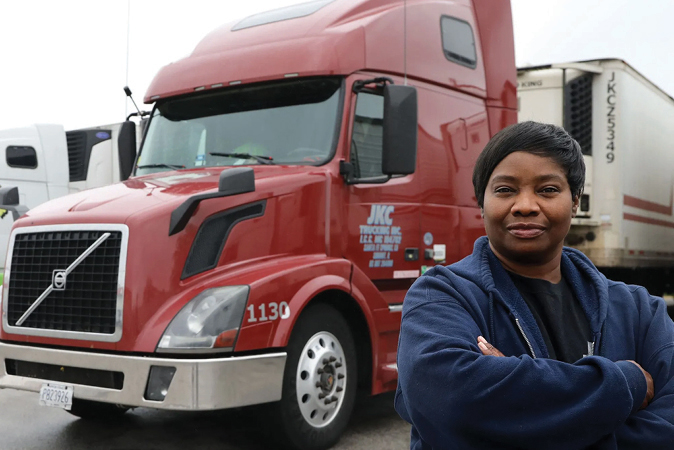|
By Dean Croke, DAT Freight & Analytics
Every year the trucking industry promotes National Truck Driver Appreciation Week to celebrate the professionals who deliver our goods securely and on time but also keep our highways safe. This year’s event was held from September 11-17.
One week is not enough to thank truckers for their commitment to one of our economy’s most essential jobs. If trucks are part of your supply chain, I hope you’ll take every opportunity to show drivers respect and appreciation every day of the year. It’s good for business and the right thing to do.
It’s a tough job
Being a professional truck driver is tough not because it’s hard to to drive a truck. What makes trucking so demanding are all the non-driving things.
Given the nature of the job, truck drivers struggle to meet basic biological needs for sleep, nutrition, physical activity, and social interaction. The independence is countered by feelings of isolation, risk to personal safety, and the frustration that comes from unrealistic schedules and people with short fuses when those schedules aren’t met.
Worse is the stress of being away from home.
It’s hard to explain, but take it from someone who’s driven over 2 million miles as an over-the-road trucker. Being away from home weighs heavily on drivers every minute of the day. Drivers have hours upon hours of “windscreen time” to think about whatever they left unresolved when they left. Little problems metastasize as the miles pass beneath you.
Long-haul trucker Mustapha Mike Awada said it best: “You know, a lot of times people see the nice trucks but what they don’t see are the birthdays and the holidays and all the time and memories we miss and will just never get back.”
For all their sacrifice, truck drivers feel thoroughly unappreciated. When our company asked drivers how they are perceived by the general public, 34% said they feel disliked or hated and 46% believe the public has apathetic or neutral feelings towards them.
Here are some things you can do to turn that sentiment around:
Time is money
Most over-the-road drivers are paid by mile yet the hours they can work are regulated and monitored by an electronic logging device (ELD) on the truck. The adage “when the wheels ain’t turning, the driver ain’t earning” really is true: delays at docks and gates cost drivers both time and money.
In a separate DAT survey, 54% of drivers reported typical detention times of three to four hours, while 9% said it was common to be detained five hours or more. There are places where the wait to unload can routinely exceed 10 hours. Even a short delay can
|

throw a driver’s duty cycle into disarray leading to missed opportunities for work or rest.
Shippers and receivers take note: respecting a driver’s time and well being can pay huge returns. You’re more likely to get the same driver coming to your yard to pick up or drop off your loads, which means more consistent service. Word will get around: drivers know which facilities keep them moving and they’re not shy about spreading it through the grapevine.
Parking problem
There are 3 million trucks on the road each day but only about 300,000 parking spaces to accommodate them, according to the American Transportation Research Institute.
Drivers spend, on average, nearly one hour a day searching for a safe place to park and 70% of drivers say they have violated hours-of-service regulations while they look for parking. If your facility can accommodate a parked truck while the driver is on a mandated break, or you can direct drivers to safe parking nearby, you’d certainly score points as a “shipper of choice.”
No drivers allowed
Making detention and parking matters worse, many warehouses and distribution centers don’t allow truck drivers to leave the cab while they wait, even to use the restroom. A little courtesy would go a long way, especially for female drivers. The number of female drivers is increasing steadily and there is an appalling shortage of rest areas and truck stops with safe, clean, well-lit facilities for women.
A simple wave
Every year, 3.6 million hard-working men and women haul over 10 billion tons of goods and products across the country, which accounts for 70% of America’s total annual freight. Nearly 80% of communities depend solely on trucking to deliver goods.
Without truckers, our economy would stop in a matter of days. Let them know they’re appreciated. Give them a wave or say thank you if the opportunity presents itself. Even a small gesture would make a world of difference.
Dean Croke is the principal analyst at DAT
Freight & Analytics, which operates the trucking industry’s largest load board network and the DAT iQ freight data analytics service. For more information, visit dat.com.
|


